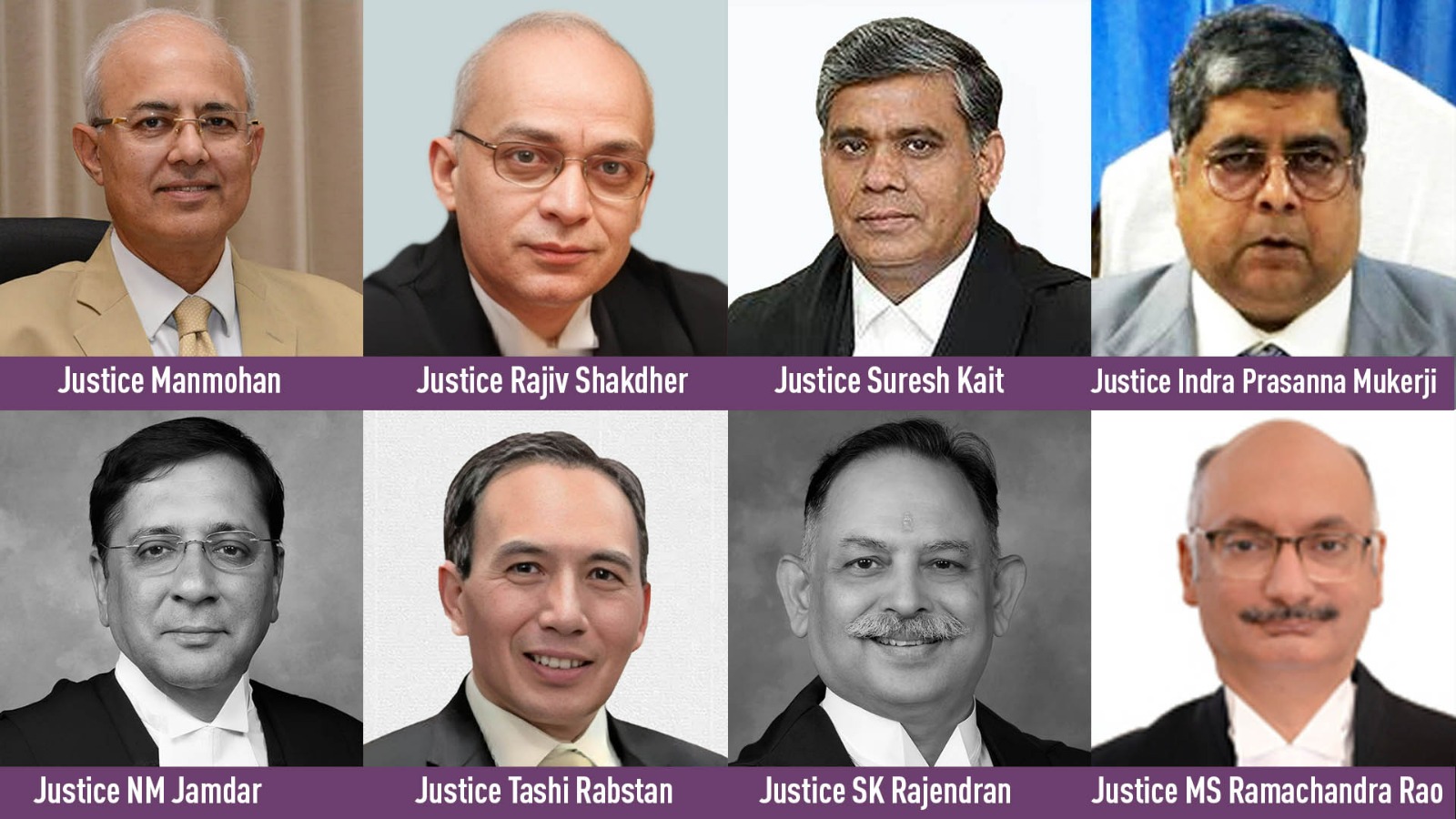Mahiyar Patel, Pune
The Union Government on Saturday approved the recommendations of the Collegium of the Supreme Court of India and appointed 8 Justices to the rank of Chief Justices of different high courts across the country.
The new judges appointed are from the length and breadth of the country. First and foremost amongst the judges is Justice Manmohan who is currently serving as the interim Chief Justice of the Delhi High Court whose appointment has been finalised and he is set to lead the High Court of Delhi as the formal Chief Justice. His fellow brother judge on the bench of the Delhi High Court Rajiv Shakdher has been tapped to lead the Himachal Pradesh High Court. Another exemplar brother judge of the Delhi high court Justice Suresh Kait has been appointed as the Chief Justice of the Madhya Pradesh High Court.
From one of the three oldest high courts in the country: Calcutta High Court is Indra Prasad Mukerji who has been selected to lead the Meghalaya High Court. Also, among the oldest High Courts of the country is the Bombay High Court from where the next judge on the list is practicing. Justice Nitin Madhukar Jamdar will be administering justice in the State of Kerala. Next on the list is the current acting Chief Justice of the Jammu & Kashmir and Ladakh High Courts; Justice Tashi Rabstan who has been confirmed as the full time Chief Justice of the J&K and Ladakh. Another brother judge from the Bombay High Court Shriram Kalpathi Rajendran has been appointed as the Chief of the Madras High Court. The final member of the list is Justice MS Ramachandra Rao who is currently serving as the Chief Justice of Himachal Pradesh and being moved to Jharkhand.
Though the Supreme Court Collegium made their recommendations on June 11, no appointments were made by the government. The collegium amended their recommendations with respect to 4 judges on September 17th which led to the swift appointments of the 8 Chief Justices
Under the present system, the three most senior judges of the Supreme Court of India form the Collegium which has the exclusive mandate in selecting judges in the country. The government uses the President’s appointing authority as an effective veto to the recommendations of the Collegium.
